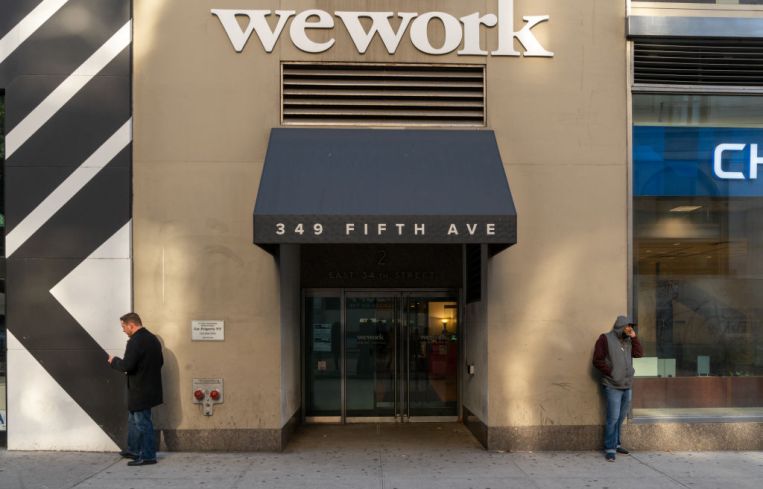Investors Sue WeWork Over Botched IPO
By Nicholas Rizzi June 4, 2020 11:03 am
reprints
A group of investors filed a class-action lawsuit against WeWork claiming the coworking giant duped them in the run-up to its botched initial public offering last year.
The suit includes investors who bought shares in the troubled coworking company between 2017 until September 2019 — when its IPO was withdrawn — and accuses WeWork of fraud by using “fanciful accounting metrics to obscure its true financial condition” to them, Bloomberg first reported.
“WeWork was engaged in profligate spending in a reckless bid for growth at all costs — not in a manner designed to sustainably grow its business, but rather to induce capital raises from investors at even higher valuations,” the suit claims. “In other words, WeWork expanded its business empire not because it made business sense, but for the primary purpose of inducing additional investment in the company.”
A spokesman for WeWork declined to comment and the lawyer for the investors, Shawn Williams, did not immediately respond to a request for comment.
The suit was filed yesterday in San Francisco federal court with only one investor named, Malakyar Vernet. WeWork’s majority backer SoftBank Group and former CEO Adam Neumann were also listed as defendants in the case.
The suit draws on news reports, investor presentations and financial records from WeWork to paint a picture of a company that misled investors into thinking it was a “fast-growing tech startup in the mold of Netflix and Amazon that had revolutionized workspaces” with a “sound” business model.
“Behind its New Age facade and tech trappings, WeWork was at its core just another commercial real estate business, albeit one with a fundamentally flawed, unprofitable business model,” the suit said. “Its growth was not sustainable without the continuous influx of billions of dollars of investor capital.”
Last year, WeWork was valued at an eye-popping $47 billion when it submitted paperwork for an IPO in August 2019. While the filings showed WeWork’s revenue grew at a staggering rate from $436 million in 2016 to $1.82 billion in 2018, its losses increased at a similar pace.
WeWork’s net losses increased from $430 million in 2016 to $1.6 billion in 2018 with early 2019 numbers showing the losses would continue to pile up.
Investors were already wary about WeWork’s money-burning model when the Wall Street Journal published a profile of Neumann that shined a light on his erratic behavior — including smuggling weed on a private jet to Israel.
Neumann quickly stepped down, WeWork canceled the IPO and SoftBank provided a multibillion-dollar bailout in October 2019 as the company faced the prospect of running out of cash. In May, SoftBank said WeWork’s valuation fell to $2.9 billion.
The lawsuit from investors isn’t the only legal battle WeWork is dealing with at the moment.
Neumann and a special committee of the board of WeWork both filed suits against SoftBank over the Japanese bank’s cancelation of a deal to buy $3 billion worth of shares of WeWork from stockholders, which included Neumann’s nearly $1 billion golden parachute.
A group of WeWork members also hired a high-profile lawyer to demand the company stop collecting membership fees during the coronavirus pandemic — which has left most companies working from home — and threatened legal action if it continued.
WeWork was already bracing for a rough 2020 — naming real estate legend Sandeep Mathrani as CEO to right the ship — before the coronavirus pandemic hit.
Since then, WeWork hired JLL and Newmark Knight Frank to renegotiate its leases and Mathrani recently told analysts it was looking to exit or restructure 20 percent of its leases, the Financial Times reported.
It’s also looking to cut the amount of space it signed on to lease in an under-construction development in London, Bloomberg reported.



